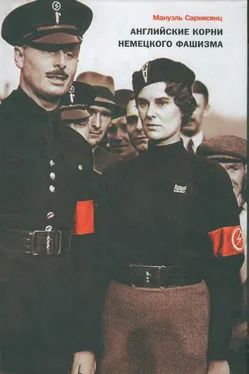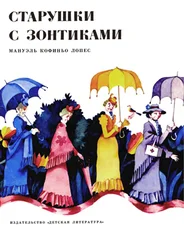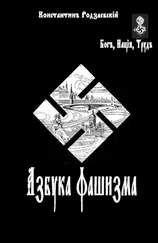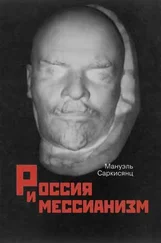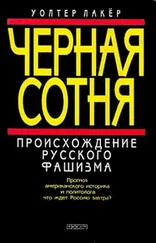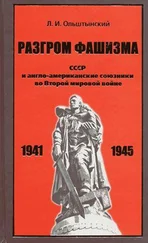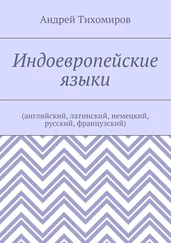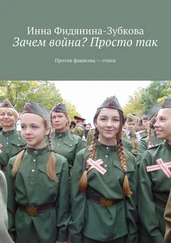Hermann Marcus, Der Spiesserstaat (Hamburg, 1977), S. 189; Klee & Dressen «Gott mit uns». Deutscher Vernichtungskrieg im Osten (Frankfurt, 1989), S. 39: Tagesbefehl des Generalfeldmarschalls von Reichenau vom 28. Oktober 1941. Vgl. E. Sarkisyanz, Russland und der Messianismus des Orients (Tubingen, 1955), S. 199, Fussnote 14.
A. Glucksmann, Die Meisterdenker (Rheinbeck, 1978), S. 45; Struve, Elites (as reference 190), p. 458.
H. Hartle, Alfred Rosenberg, Grossdeutschland (1970), S. 238; De Slade, p. 123;
Eckenhard Struhldreher («Leibstandarte» of the SS), in the German Television, MDR, 21. July, 1999, at 9 p. m.
Seymour Lipset, «Fascism as extremism of the Center», in: Gilbert Allardyce (Editor), The place of Fascism in European history (Englewood Cliff, New Jersey, USA, 1971), p. 113.
Cf. Gisela Lebzelter, Political Antisemitism in England 1918–1939, p. 174.
Charles Dilke, Greater Britain (London, 1869), pp. 223, 564.
Gerwin Strobl, The Germanic Isle. The Nazi perception of Britain (Cambridge, 2000), pp. 90ff: Hitler's Table Talk of 22. August, 1942.
Hermann Rauschning, Gesprache mit Hitler (Zurich, 1940), S. 116f; Раушнинг. С. 102.
Reichskolonialamt, Die Behandlung der eingeborenen Bevolkerung in den Kolonialbesitzungen Deutschlands und Englands (Berlin, 1919), S. 73ff, 82.
Rede des Reichskommissar Erich Koch auf \ersammlung der NSDAP in Kiew am 5. Marz 1943: Ernst Klee & Willi Dressen (Hrsg.), «Gott mit uns», Deutscher Vernichtungskrieg im Osten (Frankfurt, 1982), S. 218.
Понятие «concentration camps» первой применила британская сторона для собственных учреждений — этот факт использовала немецкая пропаганда времен войны (см., например, речь Гитлера от 30 января 1941 г.). В 1900–1901 гг. в таких лагерях англичане интернировали 117 тыс. бурских женщин и детей (чтобы принудить бурских партизан к капитуляции). Смертность в этих английских «бурских лагерях» составляла от 22 до 34 %. Эти лагеря описала англичанка Эмили Хобхауз ((1860–1926), англ. общ. деятельница; резко критиковала политику Англии в бурской войне и особенно отношение к женщинам в концлагерях, активно занималась помощью заключенным) (прим. автора).
Rudyard Kipling, Something of Myself (London, 1951), p. 162; Oskar Hintrager, Geschichte von Sudafrika (Munchen, 1952), S. 373f; zitiert Emily Hobhouse, The brunt of War (London, 1902); Robert MacDonald, Language of Empire, Mythos of popular Imperialism (Manchester, 1994), p. 39.
M. Domarus, Hitlers Reden und Proklamationen 1932–1945 (Munchen, 1965), Bd. II, Teil II, S. 1658; Rauschning, Gesprache mit Hitler, S. 117; Раушнинг. С. 102.
Hannah Arendt, Elemente und Ursprunge totaler Herrschaft (1955), S. 720; Schreiben des Rustungsinspektors-Ukraine, Generalleutnant Hans Leykauf, vom 2. Dezember 1941 an das Hauptwehrwirtschafts- und Rustungsamt im OKW sowie geheime Aufzeichnung vom 25. Oktober 1942 des Otto Brautigam vom Ostministerium: Klee & Dressen, Gott mit uns, S. 200, 202.
Heinrich Treitschke, Politik. Vorlesungen, S. 546, 573; Adolf Hitler, Mein Kampf (Munchen, 1933), S. 740, 741.
Carthill, \erlorene Herrschaft (1924), S. 101, 115f, 85ff.
Richard Symonds, Oxford and Empire. The last lost Cause? (Oxford, 1991), p. 3.
Alain Cairn, Prelude to Imperialism. British reactions to Central African society 1840–1890 (London, 1965), p. 238; MacDonald, Language of Empire, p. 153f; Rutherford, Forever England (London, 1997), p. 15.
Alain Cairn, pp. 35, 93, 237; K. Tidrick, Empire and the English Character, p. 7;
Spectator, 15. October, 1864, p. 1179, quoted in Ch. Bolt, Victorian Attitudes to Race, p. 216.
R. Symonds, Oxford and Empire, p. 226.
Lord Olivier, The Myth of Governor Eyre (London, 1933), I, p. 115; Peter Marsh, The Conscience of the Victorian State (Syracuse, 1979), pp. 96, 126.
R. Symonds, Oxford and the Empire, pp. 214, 217, 218.
W E. F. Ward, Fraser of Trinity and Achimata (Accra, 1965), p. 146 cited by Symonds.
Welldon, Youth and Duty. Sermons (1907), pp. 155f, 160.
Wilhelm Dibelius, England II, S. 210; Matthew Arnold, Culture and Anarchy (New Haven, 1994), p. 157.
Correlli Barnett, The Collapse of British Power (1977), p. 33.
К. Tidrick, Empire and the English Character (London, 1992), p. 216.
John Rogers, Old Public Schools of England (London, 1938), p. 2.
Thomas Hughes, Tom Brown's School Days (Oxford, 1989), p. 142, 228f.
Ibid., p. 195.
Т. C. Worsley, Barbarians and Philistines (London, 1940), p. 202; K. Tidrick, Empire and the English Character, p. 99.
Mangan, Games'ethics and Imperialism (as reference 108), p. 195.
Stead, Last Will… of Cecil Rhodes, pp. 100, 101, 114, 39 (t); Simon Heffer, Moral Desperado. A Life of Thomas Carlyle (London, 1995), p. 236.
E W. Hammond, Liberalism and Empire (London, 1900), p. 156f; John Morley, Life of… Cobden (as reference 712), p. 97; Wingfield-Stratford, History of English Patriotism, Vol. II (London, 1913), p. 585.
Янгхасбенд Фрэнсис Эдвард (1863–1942) — англ. путешественник, исследовал Центральную Азию и Тибет, в 1906–1909 гг. — британский резидент в Кашмире.
Francis Younghusband, The Heart of Asia (London, 1896), p. 396f in: Robert Huttenback, Racism and Empire (1976), p. 15.
Твой жребий — Бремя Белых!…
Править тупой толпою
То дьяволов, то детей…
(Бремя Белых / Пер. В. Топорова //
Киплинг Р. Бремя Белых. М, 1995. С. 43).
Rudyard Kipling, Verses (London, 1940), p. 256.
Твой жребий — Бремя Белых! Награда же из Наград —
Презренье родной державы И злоба пасомых стад.
Ты (о, на каком ветрище!) Светоч зажжешь Ума,
Чтоб выслушать: «Нам милее Египетская тьма!»
Читать дальше
